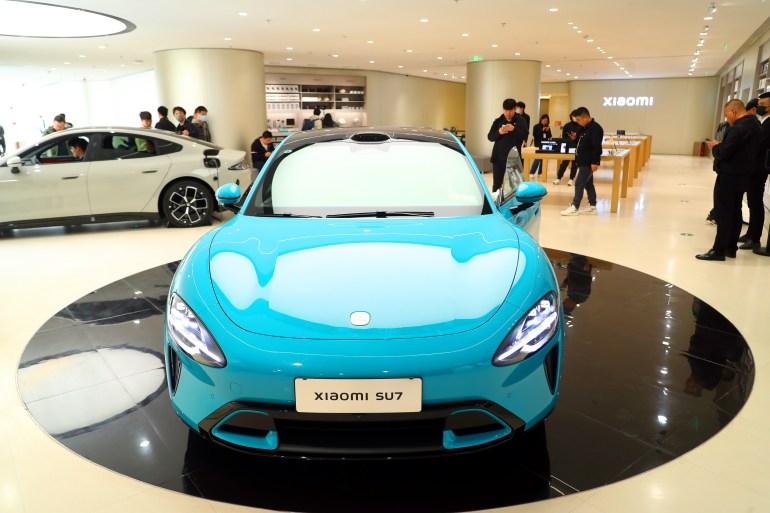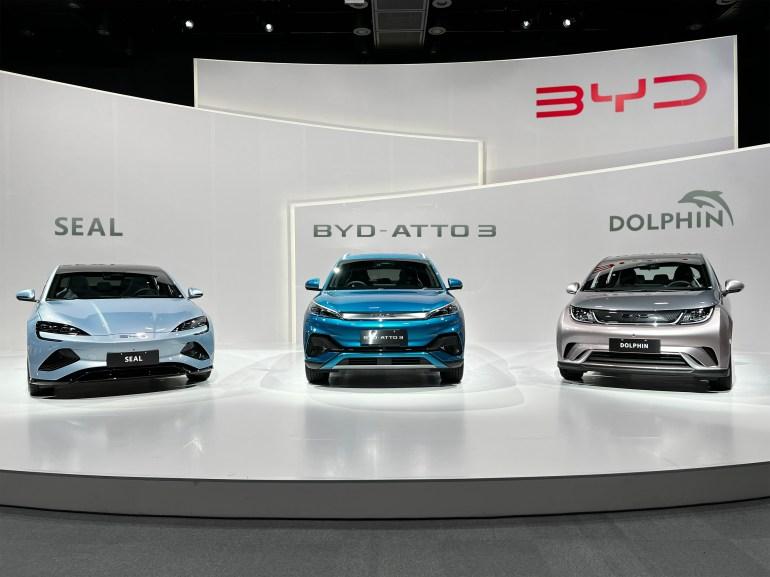Source: ALJAZEERA
ALJAZEERA MEDIA NETWORK

The EU's potential tariff increase on Chinese electric vehicles is part of broader trade tensions regarding China's state support for green technologies.
The European Union will elevate tariffs on Chinese electric vehicles (EVs) starting July 4 unless Beijing agrees to address the subsidies that the bloc claims are skewing the market.
The European Commission announced on Wednesday that tariffs on Chinese carmakers will increase to 38 percent from the current 10 percent on July 4, unless negotiations with China can resolve the subsidy issues. This EV dispute is among several trade conflicts between the EU and Beijing, mainly centered on green technologies.
In a press statement, the EU executive mentioned it has reached out to Chinese authorities to discuss the implications of its probe into the subsidies and “explore potential resolutions” to the grievances.
Should the discussions with Chinese officials fail to produce a workable solution, the new tariffs will be effective from July 4, the statement noted.
This move by the EU was anticipated amidst a probe into China's state support for its carmakers, who have benefited from the lower 10 percent tariff, in contrast to the higher tariffs imposed by countries like the US or India.
The commission argues that Chinese-made EVs are 20 percent less expensive than their European equivalents. This price advantage has led to a surge in imports, including from Western brands like Tesla and BMW with manufacturing plants in China. According to Eurostat, imports rose from 57,000 units in 2020 to over 437,000 in 2023.
Chinese brands such as BYD and SAIC are also gaining market share, helped by Beijing's substantial subsidies, which enable them to offer lower prices than European brands.

 BYD office
BYD office
The EV trade dispute is part of a larger conflict over what the EU perceives as China's unfair state assistance for green tech exports, including solar panels, batteries, and wind turbines.
In response to the commission's announcement, Cui Dongshu, secretary-general of the China Passenger Car Association, noted that the provisional tariffs align with their expectations and will not significantly impact most Chinese companies.
Chinese EV manufacturer Nio, although opposing the move, reaffirmed its commitment to the European EV market.
However, the announcement has caused concern in Germany, which houses the EU's largest automotive industry.
Germany's transport minister cautioned that the EU's proposed tariff hike could trigger a “trade war” with Beijing.
Volker Wissing commented on X, stating, “The European Commission’s punitive tariffs affect German firms and their leading products. Cars need to become cheaper through increased competition, open markets, and considerably better business conditions in the EU, not through trade conflict and market isolation.”
Ola Kaellenius, CEO of Mercedes-Benz, added, “As an exporting nation, we do not need increasing trade barriers. We should focus on reducing trade barriers in the spirit of the World Trade Organisation.”
Your email address will not be published. Required fields are marked *